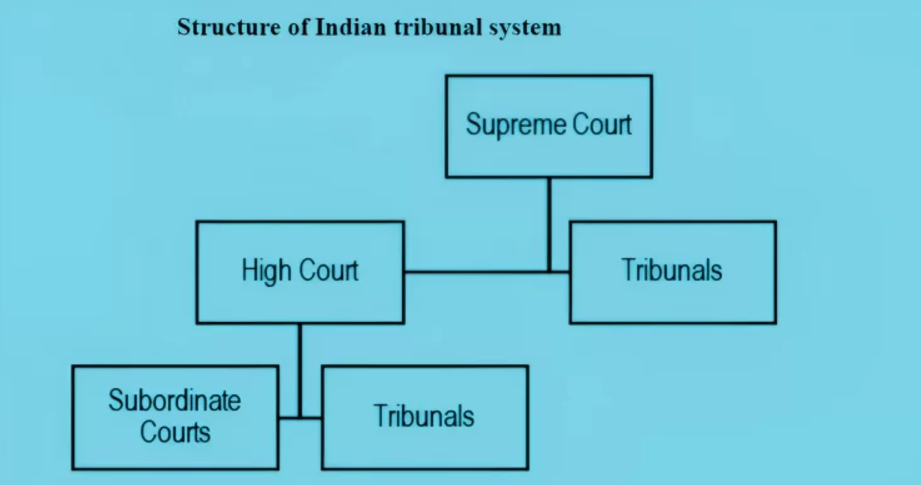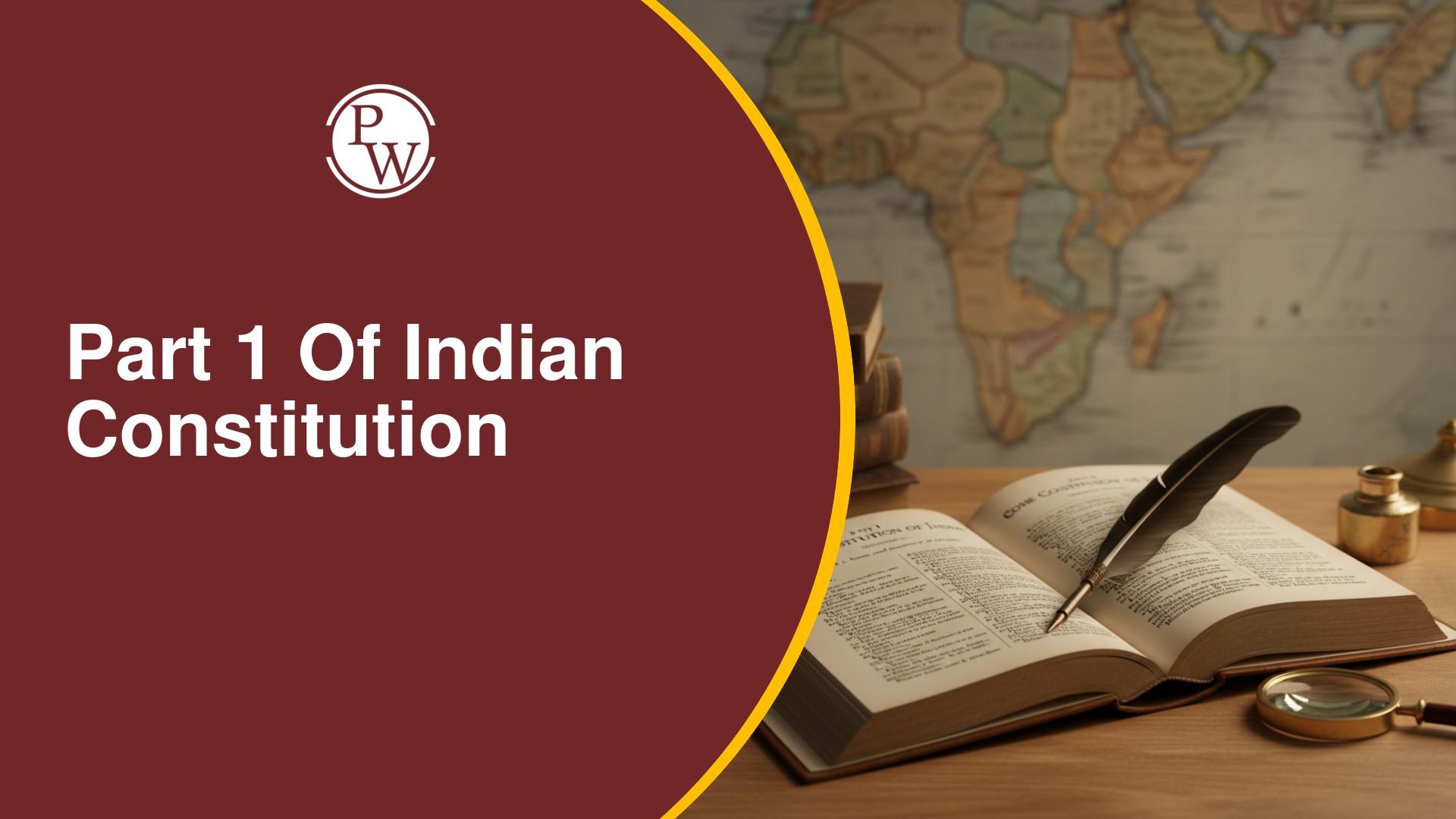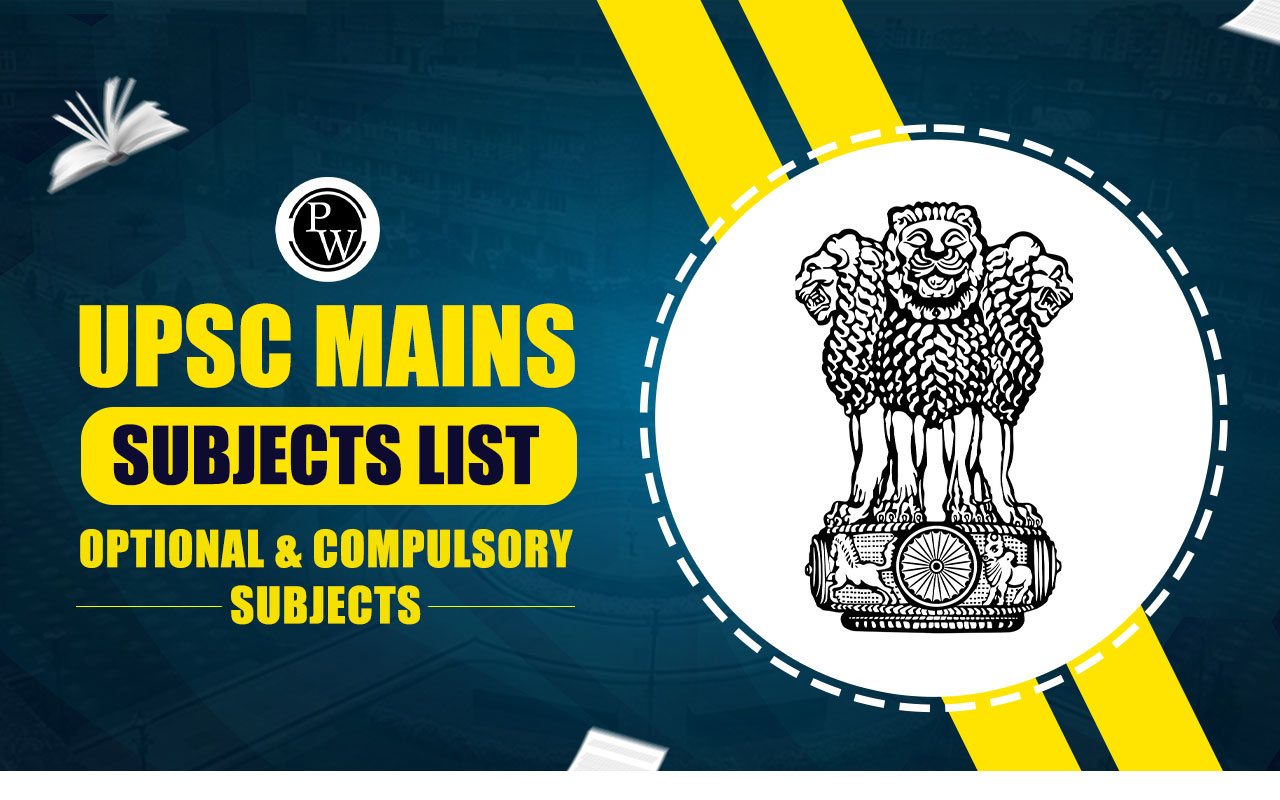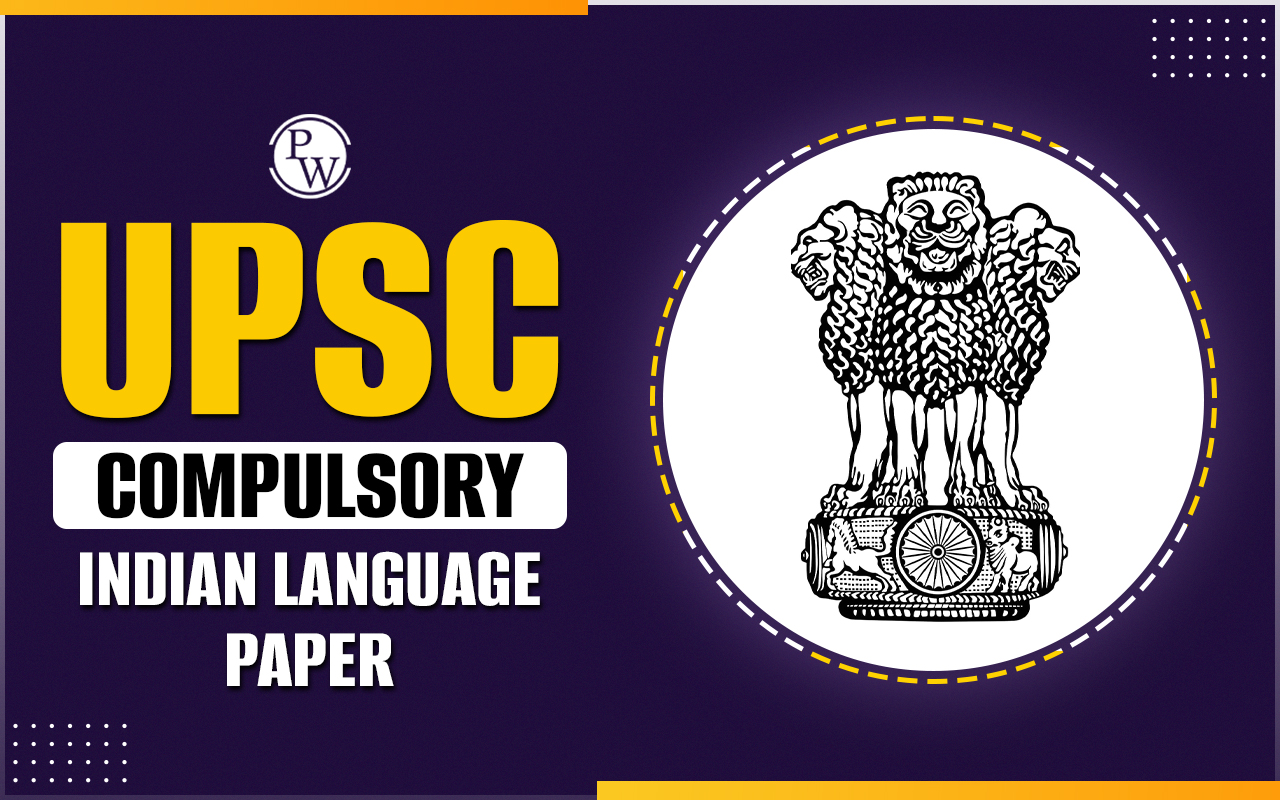
Tribunals in India play a significant role by providing specialized forums to resolve disputes quickly and efficiently. They ease the burden of the Indian judiciary by providing specialised resolutions.
These quasi-judicial bodies are a crucial part of India's administrative machinery, ensuring justice in various sectors like taxation, labor, and service matters. Keep reading about what tribunals are, their types, and the list of tribunals in India!What Are Tribunals?
A tribunal is a specialized body or authority created by law to adjudicate disputes or provide a resolution in a particular area. Unlike traditional courts, tribunals are designed to focus on specific matters such as labor issues, service disputes, taxation, and administrative concerns. They often function outside the regular court system but have judicial powers. Tribunals aim to deliver justice more efficiently and reduce the burden on regular courts. Some of the key features of tribunals include:- They are not a part of the traditional court hierarchy.
- They comprise judicial members and experts from relevant fields.
- Their decisions can be appealed in higher courts.
Tribunal System in India
Tribunals are quasi-judicial bodies created to address specific disputes that may not require regular court proceedings. In India, the tribunals are largely governed by Articles 323A and 323B of the Indian Constitution, which empower the government to create tribunals as alternative dispute resolution mechanisms for various areas.- Article 323A: Covers administrative tribunals that resolve disputes related to public services.
- Article 323B : Enables the creation of tribunals for other matters like taxation, foreign exchange, and industrial disputes.

Types of Tribunals in India
India’s tribunal system can be classified into two broad categories: Administrative Tribunals and Other Tribunals.- Administrative Tribunals: These address disputes related to the functioning of public services under Article 323A. For example, the Central Administrative Tribunal (CAT) resolves cases concerning central government civil service employees.
- Other Tribunals: These are created by an act for specific purposes under Article 323B. Key examples include the Income Tax Appellate Tribunal (ITAT), the National Company Law Appellate Tribunal, and the National Green Tribunal (NGT).
List of Tribunals in India
Various tribunals have been created under Article 323A and 323B of Indian constitution. Here is a list of some of the most important tribunals in India:| List of Tribunals in India | ||
| Name of Tribunal | Establishing Act | Key Details |
| Central Administrative Tribunal | The Administrative Tribunal Act, 1985 | Deals with recruitment and service matters of public servants. Its Chairman and members are appointed by the President after consulting the Chief Justice of India. |
| State Administrative Tribunals (SATs) | By the Central government at the request of state governments under the Administrative Tribunals Act of 1985. | Handles recruitment and service matters of state government employees Chairman and members appointed by the President after consulting the concerned state's Governor. |
| Joint Administrative Tribunal (JAT) | Administrative Tribunals Act of 1985 | Functions for two or more states, exercising the powers of administrative tribunals for those states. |
| National Green Tribunal | The National Green Tribunal Act, 2010 | Resolves cases related to environmental protection. Principal Bench in New Delhi, with additional benches in Bhopal, Pune, Kolkata, and Chennai. |
| Central Government Industrial Tribunal | The Industrial Disputes Act, 1947 | There are 22 Industrial Tribunals cum Labour Courts to resolve industrial disputes in the industrial sector. |
| Income-Tax Appellate Tribunal | The Income-tax Act, 1961 | Resolves disputes related to income tax laws and assessments. |
| Customs, Excise and Service Tax Appellate Tribunal | The Customs Act, 1962 | It resolves disputes related to customs, excise, and service tax matters and has 16 Judicial Members and 16 Technical Members. |
| Securities Appellate Tribunal | The Securities Exchange Board of India Act, 1992 | It hears appeals against orders passed by the Securities and Exchange Board of India (SEBI). |
| Telecom Disputes Settlement and Appellate Tribunal | The Telecom Regulatory Authority of India Act, 1997 | Resolves disputes in the telecommunications sector, protecting the interests of service providers and consumers. |
| National Company Law Appellate Tribunal (NCALT) | The Companies Act, 2013 | Constituted in 2016, Adjudicates issues related to Indian companies, including insolvency and corporate governance matters. |
| Armed Forces Tribunal (AFT) | The Armed Forces Tribunal Act, 2007 | Deals with disputes related to the Armed Forces, including recruitment, promotions, and conditions of service. |
| Foreigners Tribunals (FTs) | Foreigners' Act of 1946 | Established in 1964, these tribunals are unique to Assam for addressing illegal foreigner issues. |
| Water Disputes Tribunal (WDT) | Inter-State River Water Disputes (ISRWD) Act, 1956 | These are established to resolve disputes regarding the waters of inter-State rivers and valleys. |
Role of Tribunals in India
Tribunals are an integral part of the Indian legal framework. They uphold the principles of justice and fairness while catering to the specific needs of modern governance. Some key roles of Tribunals are:- Reduces Burden on Judiciary: Tribunals handle specialised cases, helping regular courts focus on critical issues.
- Speedy Justice: Tribunals are designed to deliver quick resolutions, reducing delays in traditional courts.
-
Expertise-Based Decisions:
Members have technical knowledge, leading to more accurate judgments.
- For example, the Income Tax Appellate Tribunal with expertise in tax laws.
- Accessible Legal System: Tribunals simplify the legal process, making it more accessible for citizens.
- Ensuring Accountability: Some tribunals, like the Central Administrative Tribunal (CAT), play an important role in ensuring accountability in public administration.
UPSC PYQs on TribunalsUPSC Prelims 2012: The National Green Tribunal Act, 2010 was enacted in consonance with which of the following provisions of the Constitution of India? (2012)
(a) 1 only (b) 2 and 3 only (c) 1 and 3 only (d) 1, 2 and 3 UPSC Mains 2018: How far do you agree with the view that tribunals curtail the jurisdiction of ordinary courts? In view of the above, discuss the constitutional validity and competency of the tribunals in India? (250 words, 15 marks) |
| UPSC Related Articles | ||
| Chief Justice of India | Mission Karmayogi | Judicial Activism |
| Regulatory Bodies in India | Cooperative Federalism | Anti-Defection Law |
Tribunals in India FAQs
What are tribunals in India?
Tribunals are quasi-judicial bodies resolving disputes in specific areas like taxation, labour, and the environment.
Why tribunals are formed?
Tribunals are formed to reduce the judiciary’s burden and provide speedy resolutions for specialised disputes.
How many tribunals are there in India?
India has many tribunals, including the Central Administrative Tribunal (CAT), Income Tax Appellate Tribunal (ITAT), and National Green Tribunal (NGT), among others.
What is the difference between Article 323A and 323B?
Article 323A focuses on administrative tribunals, while Article 323B allows for tribunals in taxation, labour, and other fields.
Which tribunal handles environmental disputes in India?
The National Green Tribunal (NGT) handles environmental disputes, ensuring effective environmental protection.
Talk to a counsellorHave doubts? Our support team will be happy to assist you!

Free Learning Resources
PW Books
Notes (Class 10-12)
PW Study Materials
Notes (Class 6-9)
Ncert Solutions
Govt Exams
Class 6th to 12th Online Courses
Govt Job Exams Courses
UPSC Coaching
Defence Exam Coaching
Gate Exam Coaching
Other Exams
Know about Physics Wallah
Physics Wallah is an Indian edtech platform that provides accessible & comprehensive learning experiences to students from Class 6th to postgraduate level. We also provide extensive NCERT solutions, sample paper, NEET, JEE Mains, BITSAT previous year papers & more such resources to students. Physics Wallah also caters to over 3.5 million registered students and over 78 lakh+ Youtube subscribers with 4.8 rating on its app.
We Stand Out because
We provide students with intensive courses with India’s qualified & experienced faculties & mentors. PW strives to make the learning experience comprehensive and accessible for students of all sections of society. We believe in empowering every single student who couldn't dream of a good career in engineering and medical field earlier.
Our Key Focus Areas
Physics Wallah's main focus is to make the learning experience as economical as possible for all students. With our affordable courses like Lakshya, Udaan and Arjuna and many others, we have been able to provide a platform for lakhs of aspirants. From providing Chemistry, Maths, Physics formula to giving e-books of eminent authors like RD Sharma, RS Aggarwal and Lakhmir Singh, PW focuses on every single student's need for preparation.
What Makes Us Different
Physics Wallah strives to develop a comprehensive pedagogical structure for students, where they get a state-of-the-art learning experience with study material and resources. Apart from catering students preparing for JEE Mains and NEET, PW also provides study material for each state board like Uttar Pradesh, Bihar, and others
Copyright © 2026 Physicswallah Limited All rights reserved.









